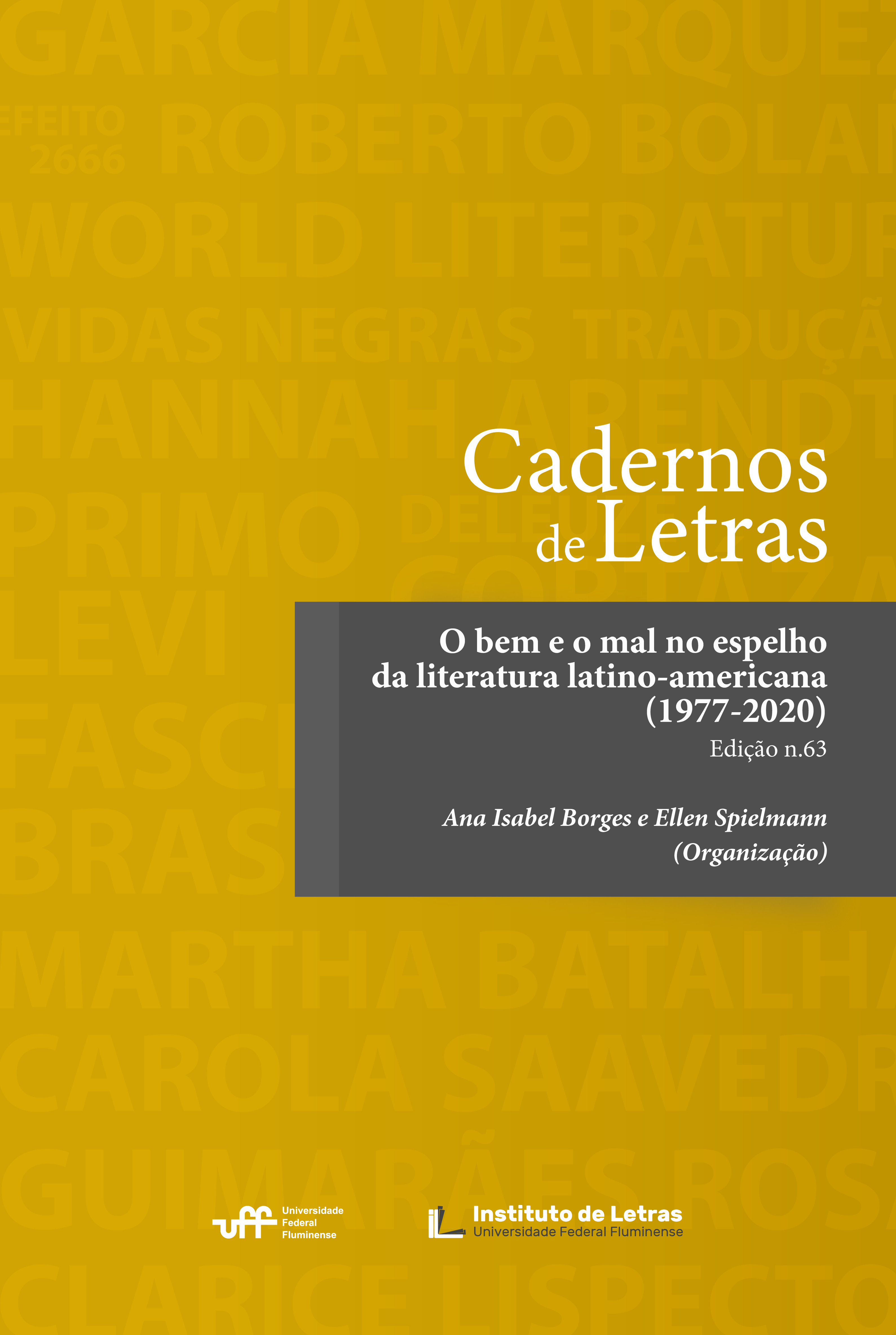Retratos de fascismos brasileiros: a relação de Teocrasília e a nova ordem com o bolsonarismo
DOI:
https://doi.org/10.22409/cadletrasuff.v32i63.50290Abstract
Dystopia is one of the most political genres that literature can assume, since it absorbs traces of the politics of real to distort it in the form of a nightmare. In this scope, it is symptomatic that novels such as Teocrasília and The new order are launched during the rise of an Ur-Fascist movement in Brazil, to use the concept created by Umberto Eco. Both absorb fragments of bolsonarism and, in the process of falsifying the real, create a literary reality in which a Brazilian version of Ur-Fascism became totalitarian. This work will put the political theory about Ur-Fascism into dialogue with the two objects, in order to understand how traces of this political movement are apprehended by fiction. In this way, it will contribute to the state of the art by making it possible to understand Ur-Fascism in several of its potentialities, as well as the ways in which political literature recreates political theory.
Downloads
Downloads
Published
How to Cite
Issue
Section
License
Copyright (c) 2024 Caderno de Letras da UFF

This work is licensed under a Creative Commons Attribution-NonCommercial 4.0 International License.
I authorize Cadernos de Letras da UFF to publish the paper of my authorship/responsibility that I now submit, in case it is accepted for online publication.
Moreover, I declare that this contribution is original, that it was not submitted to any other editor for publication, and I sign the present declaration attesting the truth of all its contents.
The copyright of the works published at the virtual space of the Cadernos de Letras da UFF are automatically entitled to Cadernos de Letras da UFF. Their total or partial reproduction is conditioned to the authors' citations and publication data.

Cadernos de Letras da UFF is licensed under a Creative Commons - Attribution-NonCommercial 4.0 International (CC BY-NC 4.0).





